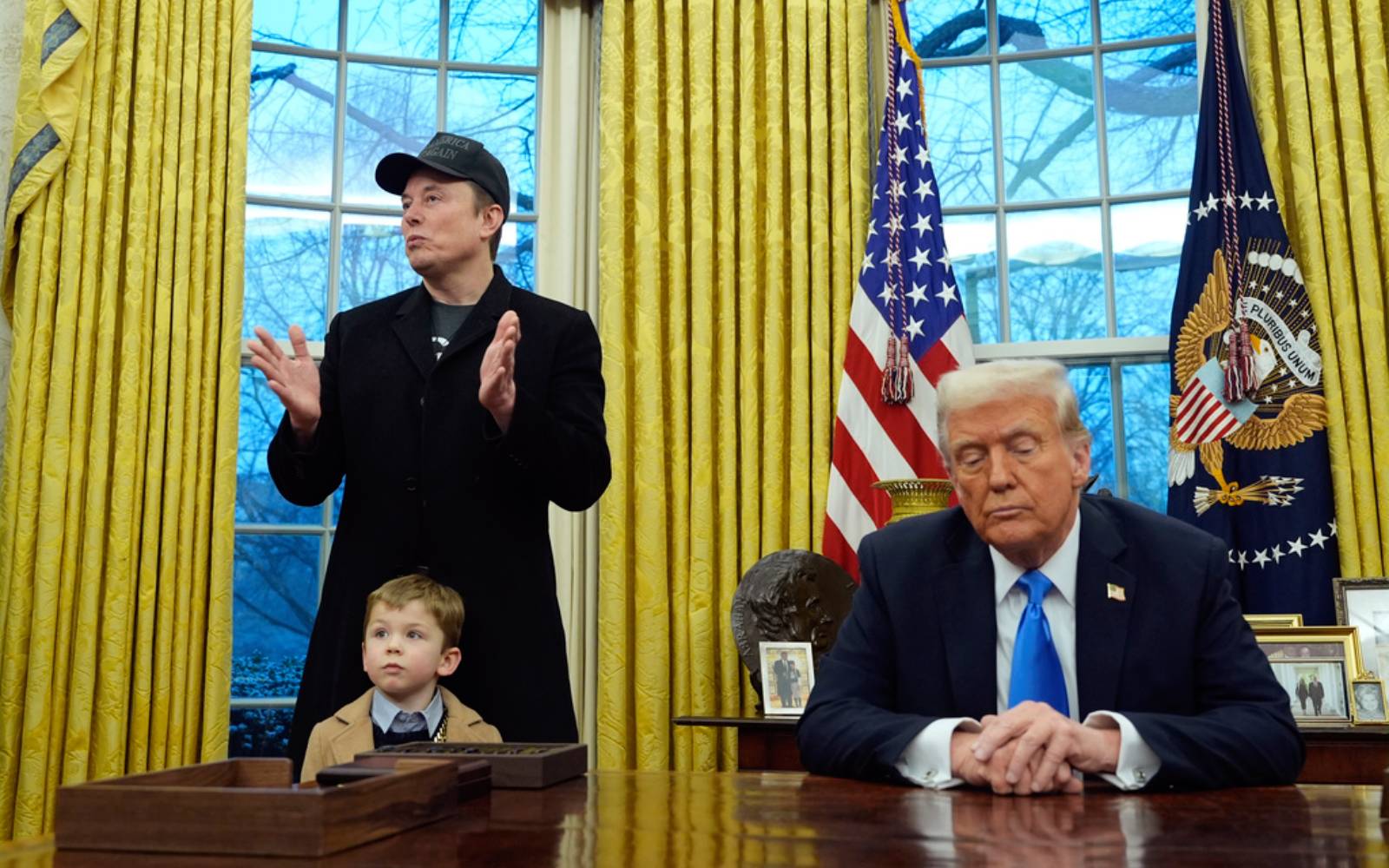
The past week has witnessed significant upheaval in the U.S. government, marked by a series of layoffs and controversial decisions. The Trump administration has made headlines with its move to end New York City’s congestion pricing program, while also grappling with widespread layoffs across various federal agencies. The Department of Veterans Affairs, Internal Revenue Service, and the Centers for Disease Control and Prevention are among the numerous departments affected by these cuts. Meanwhile, the Pentagon has paused a large-scale firing plan under scrutiny. In Washington, President Donald Trump continues to project confidence, as illustrated by a photo shared by the White House on X portraying him as a “smiling king.”
Trump’s Victory Over New York City’s Congestion Pricing Program
The administration’s decision to halt New York City’s congestion pricing program has sparked significant discussion. President Trump expressed his triumph over the initiative by stating:
“CONGESTION PRICING IS DEAD. Manhattan, and all of New York, is SAVED. LONG LIVE THE KING!” –President Donald J. Trump
The move has been met with mixed reactions as congestion pricing aimed to reduce traffic and pollution in one of the world’s busiest cities.
In parallel, federal agencies face an unprecedented wave of layoffs. The Department of Veterans Affairs has laid off over 1,000 recently hired workers, while probationary workers at various government agencies have also been dismissed. Among those affected are hundreds of employees at the Federal Aviation Administration. The Internal Revenue Service has not been spared either, with about 6,000 workers laid off from various locations, including a call center in Utah. The Centers for Disease Control and Prevention (CDC) has also reduced its workforce by approximately 10%, impacting their 13,000-person staff.
Mistaken Layoffs and Exemptions in Critical Sectors
The situation is further complicated by an inadvertent wave of firings at the U.S. Department of Agriculture, where personnel involved in the crucial Food Safety Inspection Service were mistakenly dismissed amidst an avian flu outbreak. Defense officials are urgently compiling lists of workers who should remain exempt from these layoffs due to their essential roles in cybersecurity, intelligence, operations, and foreign military sales.
Senator Susan Collins has vocally advocated for exemptions at the Portsmouth Naval Shipyard, emphasizing the strategic importance of retaining skilled workers in critical sectors.
In Georgia, Representative Richard McCormick faced backlash when he attempted to draw parallels between President Trump’s actions and those of the Biden administration. His remarks were met with boos from the audience.
Another notable figure stirring controversy is Elon Musk, who recently claimed to have effectively ended foreign aid by “feeding USAID to a woodchipper.” Musk’s antics continued at a conservative convention where he wielded a chainsaw on stage while wearing sunglasses, eliciting wild cheers from attendees.
In response to the widespread layoffs, the Office of Personnel Management has defended its actions by arguing that probationary employees fail to contribute positively to the Pentagon’s overall performance. This justification has sparked debate about the role and value of probationary workers within government agencies.
The ripple effects of these decisions extend further, with nuclear safety workers based in Texas also mistakenly laid off. The oversight highlights the complexities and challenges associated with mass layoffs across federal agencies.
Amidst these developments, individuals like Lennox have spoken out about the human impact of these layoffs. He emphasized the hardworking nature of those affected:
“It’s your neighbors,” he said. “These are not the evil bureaucrats you think that are just coming up to system and living off the system. We want to work hard. We want to help people,” Lennox said.
As discussions continue around these sweeping changes, questions arise about executive power and its implications for governance. Concerns about executive privilege have been voiced:
“I don’t think executive privilege should be as strong as it is. I think we’re out of balance right now,” he said.
These remarks reflect broader concerns about governance balance in the current political climate.
What The Author Thinks
The sweeping layoffs and controversial decisions by the Trump administration raise significant concerns about the long-term effects on the federal workforce and the country’s governance. While some of the cuts may be seen as necessary for efficiency, the unintended consequences, such as the mistaken layoffs of essential workers and the lack of clarity in policies like congestion pricing, highlight the risks associated with such widespread reductions. The government’s approach to layoffs, paired with the focus on executive power, suggests that more nuanced discussions and solutions are needed to address the complex challenges facing the country’s workforce and governance.
Featured image credit: FMT
Follow us for more breaking news on DMR
